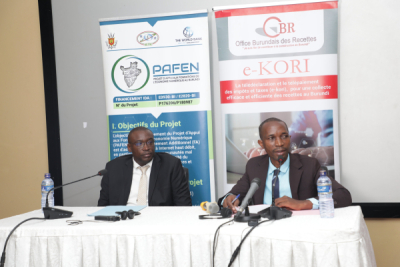As artificial intelligence advances across Africa, cybersecurity vulnerabilities are growing, leaving citizens, institutions, and infrastructure exposed to increasingly sophisticated attacks. Authorities are struggling to contain the rapid rise of online crime in this environment.
Cybercrime is rapidly expanding across Africa, now accounting for up to 30% of reported crimes in some regions, particularly West and East Africa. This is according to Interpol's latest cyberthreat assessment report on the continent, published on Monday, June 23. The annual assessment highlights a surge in digital attacks among African member states, with threats becoming increasingly sophisticated. Online scams, especially phishing, ransomware, business email compromise (BEC), and digital sextortion, are among the primary cyberthreats identified.
📢 New INTERPOL report warns of a sharp rise in cybercrime in Africa.
— INTERPOL_Cyber (@INTERPOL_Cyber) June 23, 2025
🔗 https://t.co/F98W3lS9gm#Cybercrime #INTERPOL
Diverse and Targeted Digital Threats
The report indicates that some attacks have targeted critical infrastructure, including the Kenya Urban Roads Authority and Nigeria's National Bureau of Statistics. In West Africa, criminal organizations such as the transnational Black Axe syndicate are implicated in BEC fraud operations amounting to millions of dollars.
Figures across the continent underscore the problem. In 2024, South Africa and Egypt recorded the highest numbers of ransomware detections, with 17,849 and 12,281 cases respectively. Nigeria, with 3,459 cases, and Kenya, with 3,030 cases, followed closely, confirming the vulnerability of the continent's most digitized economies. Interpol also warns of a significant increase in digital sextortion cases, reported in 60% of African member countries. In many of these incidents, the compromising images used are often generated or manipulated with artificial intelligence.
Limited Response Capacity Amid Surge in Cyberattacks
Despite the rise in cyberattacks, investigation and response capabilities remain limited. Nine out of ten African countries believe a significant improvement in law enforcement and prosecution capabilities is necessary. Systems for incident reporting, digital evidence management, and cyberthreat databases are still uncommon. Only 30% of countries report having a notification system, 29% a digital evidence processing system, and 19% a cyberthreat database.

Legal and institutional challenges exacerbate the issue. Three-quarters of surveyed countries acknowledge that their current legal frameworks are inadequate. Furthermore, 95% cite a lack of training, resources, or specialized tools to effectively combat cybercrime.
Additionally, regional and international cooperation remains insufficient. For 86% of African countries, slow formal mechanisms, the absence of operational networks, and restricted access to data hosted abroad hinder investigations. Eighty-nine percent also believe it is necessary to strengthen their collaboration with the private sector.
Interpol, however, noted some progress. Several African states have aligned their legislation with international standards, invested in specialized units, and participated in major operations like Serengeti and Red Card, which led to over 1,000 arrests. The organization calls for stronger cooperation between governments and the private sector, as well as the integration of emerging technologies to better anticipate and counter threats. This report is part of the AFJOC (African Joint Operation against Cybercrime) initiative, supported by the United Kingdom, which aims to boost African states’ cybersecurity capacities.
By Samira Njoya,
Editing by Sèna D. B. de Sodji



















